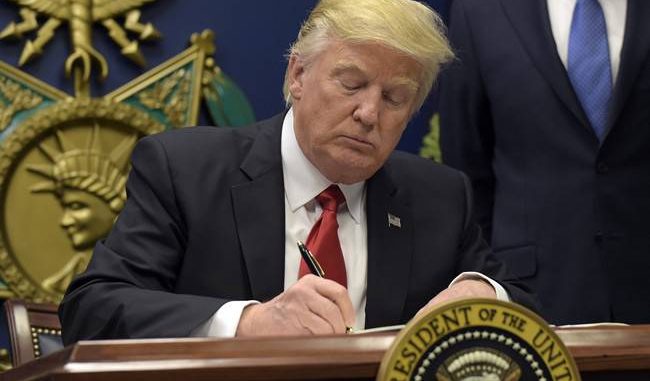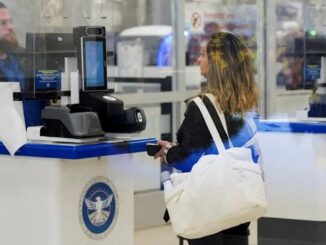
US President Donald Trump’s latest bid to impose travel restrictions on citizens from eight countries entering the US has suffered a court defeat.
A federal judge slapped a temporary restraining order on the open-ended ban before it could take effect this week.
The policy targets Iran, Libya, Syria, Yemen, Somalia, Chad and North Korea, as well as some Venezuelan officials.
Previous iterations of the ban targeted six Muslim-majority countries, but were checked by the Supreme Court.
The state of Hawaii sued in Honolulu to block Mr Trump’s third travel ban, which was set to go into effect early on Wednesday.
It argued the president did not have the powers under federal immigration law to impose such restrictions.
US District Judge Derrick Watson, who blocked Mr Trump’s last travel ban in March, issued the new restraining order.
Judge Watson wrote that the new policy “suffers from precisely the same maladies as its predecessor”.
He said “it lacks sufficient findings that the entry of more than 150 million nationals from six specified countries would be ‘detrimental to the interests of the United States'”.
Judge Watson added that it ignores an earlier federal appeals court ruling that found the president’s previous ban exceeds the scope of his authority.
The White House had contended the latest ban, announced in September, was based on a worldwide review of security protocols and information sharing.
But Hawaii argued in court documents that the revised policy was fulfilling Mr Trump’s campaign promise for “a total and complete shutdown of Muslims entering the United States”, despite the addition of North Korea and Venezuela.
The latest order temporarily blocks the ban on all targeted countries except with respect to North Korea and Venezuela.
The American Civil Liberties Union and other groups are also challenging the new travel restrictions in Maryland.
Meanwhile, Washington state, Massachusetts, California, Oregon, New York and Maryland are also seeking to block the new ban in Seattle.
White House Press Secretary Sarah Huckabee Sanders said in a statement the latest order was “dangerously flawed” and “undercuts” efforts to keep Americans safe.
“These restrictions are vital to ensuring that foreign nations comply with the minimum security standards required for the integrity of our immigration system and the security of our Nation,” her statement read.
“We are therefore confident that the Judiciary will ultimately uphold the President’s lawful and necessary action and swiftly restore its vital protections for the safety of the American people.”
The president’s original ban in March was highly controversial, as it affected six majority-Muslim countries, and was widely labelled a “Muslim ban”.
It was subject to a range of legal challenges and several large-scale protests.
The ban was due to be considered by the US Supreme Court on 10 October after it was partly reinstated in July.
But last month the Supreme Court postponed the October oral arguments and called upon all parties challenging the White House to resubmit briefs to the court on whether the case should be dismissed.
Source: bbc.co.uk






Be the first to comment